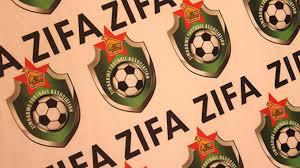Sports / Soccer
ZIFA Amateur Leagues seek voice at the Apex of local football
31 Dec 2024 at 19:42hrs | Views

The amateur leagues under the Zimbabwe Football Association (ZIFA) have united to demand greater representation within the organization's executive committee. This move comes after the leagues agreed to back two candidates from their constituencies for positions as ordinary members in the incoming ZIFA executive committee.
The stakeholders include ZIFA structures such as provinces, Area Zones, Tertiary institutions, NAPH, NASH, and Futsal leagues. In a meeting held in Gweru on Saturday, members resolved to collaborate to ensure their voices are heard at the highest levels of local football administration.
Sources at the meeting indicated that the developmental leagues feel marginalized in key decision-making processes and believe direct representation on the board is crucial.
"There is a general feeling that semi-professional leagues, such as the Regions and the Premier Soccer League (PSL), have not adequately advocated for us. We are only considered relevant during voting periods. We need genuine representation at the top to ensure that board policies positively impact the lower leagues," said a source who requested anonymity.
The source further noted the presence of a "big brother" mentality among higher-tier leagues, which they believe has stifled the growth and development of amateur leagues.
Resistance to Marginalization
Another attendee highlighted how this "big brother" mindset became evident during the constitutional review process, where there was a proposal to scrap the Area Zones. This proposal was resisted by the provinces, emphasizing the lack of advocacy for developmental leagues.
"Some regions proposed removing the Area Zones for their own reasons, which we feel was unwarranted. Without proper representation, we risk losing our influence. Having candidates from our constituencies in the executive committee would ensure developmental leagues are protected, and resources meant for grassroots football reach the rightful beneficiaries," said the source.
He also criticized the lack of focus on junior football development, both within the PSL and the broader ZIFA structure.
"PSL teams often neglect their junior teams, and this mirrors how developmental leagues are treated at the national level. We want to ensure the so-called minor stakeholders are adequately represented and their voices heard at the highest level," the source added.
Candidates and Resolutions
The meeting underscored frustrations with the current electoral landscape, where regions and PSL teams have multiple candidates vying for board positions. Despite seeking votes from developmental leagues, these candidates have not advocated for representation from the lower leagues.
Key candidates from the regions include Tirizayi Luphahla, Thomas Marambanyika, Sween Mushonga, and Davison Muchena, while those with PSL affiliations include Modern Ngwenya, Simbarashe Ndoro, Brighton Ushendibaba, Tavengwa Hara, and Morgen Dube.
To counter this trend, the meeting's 18 participants resolved to support Tatenda Cris Mtungwazi, who was nominated by the Area Zones, and Gilbert Saika, backed by the provinces. These candidates are expected to champion the interests of developmental leagues within the ZIFA executive committee.
The united stance taken by ZIFA's amateur leagues marks a significant step toward addressing historical imbalances and ensuring grassroots football gets the recognition and support it deserves.
The stakeholders include ZIFA structures such as provinces, Area Zones, Tertiary institutions, NAPH, NASH, and Futsal leagues. In a meeting held in Gweru on Saturday, members resolved to collaborate to ensure their voices are heard at the highest levels of local football administration.
Sources at the meeting indicated that the developmental leagues feel marginalized in key decision-making processes and believe direct representation on the board is crucial.
"There is a general feeling that semi-professional leagues, such as the Regions and the Premier Soccer League (PSL), have not adequately advocated for us. We are only considered relevant during voting periods. We need genuine representation at the top to ensure that board policies positively impact the lower leagues," said a source who requested anonymity.
The source further noted the presence of a "big brother" mentality among higher-tier leagues, which they believe has stifled the growth and development of amateur leagues.
Resistance to Marginalization
Another attendee highlighted how this "big brother" mindset became evident during the constitutional review process, where there was a proposal to scrap the Area Zones. This proposal was resisted by the provinces, emphasizing the lack of advocacy for developmental leagues.
"Some regions proposed removing the Area Zones for their own reasons, which we feel was unwarranted. Without proper representation, we risk losing our influence. Having candidates from our constituencies in the executive committee would ensure developmental leagues are protected, and resources meant for grassroots football reach the rightful beneficiaries," said the source.
He also criticized the lack of focus on junior football development, both within the PSL and the broader ZIFA structure.
"PSL teams often neglect their junior teams, and this mirrors how developmental leagues are treated at the national level. We want to ensure the so-called minor stakeholders are adequately represented and their voices heard at the highest level," the source added.
Candidates and Resolutions
The meeting underscored frustrations with the current electoral landscape, where regions and PSL teams have multiple candidates vying for board positions. Despite seeking votes from developmental leagues, these candidates have not advocated for representation from the lower leagues.
Key candidates from the regions include Tirizayi Luphahla, Thomas Marambanyika, Sween Mushonga, and Davison Muchena, while those with PSL affiliations include Modern Ngwenya, Simbarashe Ndoro, Brighton Ushendibaba, Tavengwa Hara, and Morgen Dube.
To counter this trend, the meeting's 18 participants resolved to support Tatenda Cris Mtungwazi, who was nominated by the Area Zones, and Gilbert Saika, backed by the provinces. These candidates are expected to champion the interests of developmental leagues within the ZIFA executive committee.
The united stance taken by ZIFA's amateur leagues marks a significant step toward addressing historical imbalances and ensuring grassroots football gets the recognition and support it deserves.
Source - Byo24News

































